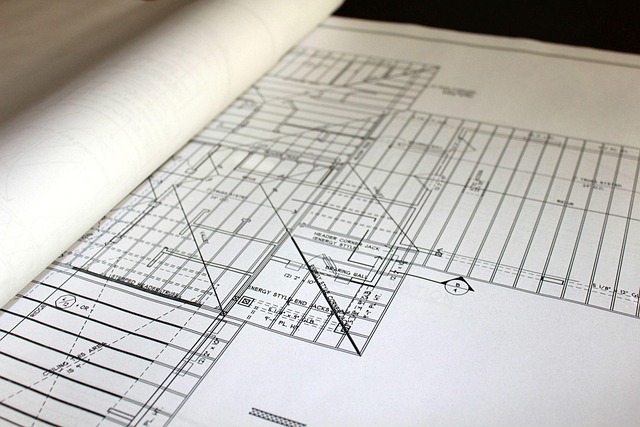Basement stabilization requires expertise from Foundation Contractors to address age, construction, and geological factors. Techniques like underpinning, piering, and wall anchoring ensure stability, prevent damage, and enhance home value. Regular inspections, swift action on issues, and proper maintenance prolong basement longevity. Foundation Contractors offer tailored solutions for cracks, water intrusion, settlement, and structural integrity.
Basement stabilization is a crucial aspect of home maintenance, addressing structural integrity and preventing costly repairs. Understanding your basement’s unique needs is essential, especially with varying climates and soil conditions affecting foundations. This article guides you through the process, from identifying crack patterns and assessing damage to exploring various leveling techniques and choosing the best stabilization method. We also delve into cost estimates, common issues, and long-term maintenance tips, emphasizing the vital role of professional foundation contractors in ensuring a solid and stable basement.
Understanding Basement Stabilization Needs

Basement stabilization is a crucial aspect of home maintenance, often requiring the expertise of foundation contractors. Understanding your basement’s unique needs is essential before embarking on any stabilization project. Factors such as age, construction type, and local geological conditions play a significant role in determining the stability of your basement.
Old homes, for instance, may have settling issues due to differential settlement, where different parts of the structure settle at varying rates. Concrete basements built on unstable soil or near water tables can also be susceptible to cracks, bowing walls, and other structural problems. Foundation contractors use advanced techniques and technologies to assess these issues, offering tailored solutions like underpinning, piering, or wall anchoring to ensure a stable and secure basement environment.
The Role of Foundation Contractors

Foundation contractors play a crucial role in basement stabilization services, ensuring the structural integrity and longevity of your home. They specialize in assessing and addressing the underlying causes of basement issues, such as cracks, water intrusion, and settlement. These professionals employ advanced techniques and materials to reinforce and stabilize foundations, preventing further damage and creating a safe, dry living space below ground level.
By employing expert knowledge and state-of-the-art equipment, foundation contractors can effectively mitigate the problems associated with unstable basements. Their work includes methods like piering, which involves installing steel piers to support the foundation, or wall anchors to prevent further cracking and shifting. These solutions not only enhance the structural stability of your basement but also increase its value, providing peace of mind for homeowners.
Assessing Basement Cracks and Damage

Basement cracks and damage can be a source of significant concern for homeowners, signaling potential foundation issues that require immediate attention. The first step in addressing these problems is a thorough assessment by qualified foundation contractors. These professionals have the expertise to identify various types of basement damage, from hairline cracks to more substantial structural failures.
During an inspection, foundation contractors will carefully examine the basement walls, floor, and ceiling for any signs of movement, shifting, or water intrusion. They may use advanced tools like moisture meters and laser measurements to pinpoint problem areas accurately. This meticulous evaluation is crucial in developing effective stabilization solutions tailored to each unique case, ensuring a safe and stable living environment.
Techniques for Basement Leveling

Basement leveling, or underpinning, is a critical service provided by foundation contractors to address settled or uneven basement floors. The most common techniques involve two primary methods: chemical injection and concrete jacking. Chemical injection uses a mixture of chemicals to expand and stabilize the soil beneath the basement, providing a more solid base for the structure. This eco-friendly approach is effective in areas with compactible soils.
Concrete jacking, on the other hand, involves drilling small holes into the floor and injecting concrete into the voids to raise and level the slab. This method offers precision and is suitable for various basement conditions. Both techniques aim to restore the structural integrity of the basement, preventing further settlement and ensuring a safer and more comfortable living space below grade.
Choosing the Right Stabilization Method

Choosing the right stabilization method for your basement is crucial, and it starts with understanding the unique needs of your structure. Foundation contractors employ various techniques, each designed to address specific issues like settling, cracking, or water intrusion. For instance, piering involves installing steel piers beneath the foundation to lift and stabilize it, ideal for severe settling issues. On the other hand, underpinning is a process of adding new support beams and foundations to transfer the load more evenly, beneficial for older structures with inadequate original support.
When selecting a method, consider factors like the extent of damage, budget, and desired outcome. Consulting with experienced foundation contractors who can assess your basement and recommend suitable solutions is essential. They will guide you in making an informed decision, ensuring long-term stability and structural integrity.
Cost Considerations for Basement Repair

Basement stabilization projects can vary greatly in cost, depending on several factors. One of the primary considerations is the extent of damage or issues present. Simple cracks and moisture problems will have different price tags compared to more complex situations involving structural repairs or complete basement waterproofing solutions.
When seeking basement repair services, it’s essential to consult with experienced foundation contractors who can provide accurate assessments and quotes. They will take into account the size and scope of work, materials required, labor costs, and any specialized techniques needed for effective long-term stabilization. These professionals can guide homeowners in making informed decisions by offering transparent pricing estimates tailored to their unique basement repair needs.
Common Issues and Their Solutions

Basements are often overlooked when it comes to structural integrity, leading to common issues like cracks in walls and floors. These problems aren’t just aesthetic; they can indicate larger foundation issues that, if left unaddressed, could result in serious damage and safety hazards. Foundation contractors offer specialized basement stabilization services to remedy these concerns. One of the primary solutions involves repairing or replacing faulty drainage systems, which often cause water intrusion and subsequent damage.
Another common issue is settlement cracks, caused by uneven soil compaction or changes in moisture levels. Foundation contractors employ various techniques, such as carbon fiber wrapping or epoxy injection, to fortify these weak points. For severe cases, underpinning—a process of installing additional support beams beneath the foundation—may be necessary. Such interventions not only enhance structural stability but also prevent future damage, ensuring a dry, safe basement environment for years to come.
Ensuring Long-Term Stability

Basement stabilization is a crucial investment for any homeowner, offering long-term stability and peace of mind. Professional foundation contractors employ advanced techniques to assess and rectify issues like settlement cracks, uneven floors, and shifting walls. These experts ensure your basement’s structural integrity by implementing effective solutions tailored to specific problems, preventing further damage and maintaining the overall value of your home.
Through regular inspections and maintenance, foundation contractors can identify potential risks early on. They offer a range of services, from piecing together minor repairs to constructing support systems for severe cases. By addressing basement stability proactively, homeowners can avoid costly renovations in the future, ensuring a safe and secure living environment below ground level.
Maintenance Tips for Basements

Maintaining a stable basement is essential, especially for homeowners looking to prevent costly repairs. Regular inspection and prompt action against any signs of water damage or structural issues are key. Foundation contractors recommend checking for common problems like cracked walls, peeling paint, or mold growth, as these could indicate larger foundation problems.
To keep your basement in good condition, consider a few simple tips. First, ensure proper drainage around the exterior to prevent water from pooling against your foundation. Second, use dehumidifiers to control humidity levels, which can reduce the risk of mold and musty odors. Lastly, seal any cracks or gaps in walls and floors to prevent pests and improve overall air quality. Regular maintenance by professional foundation contractors can significantly extend the lifespan of your basement.
